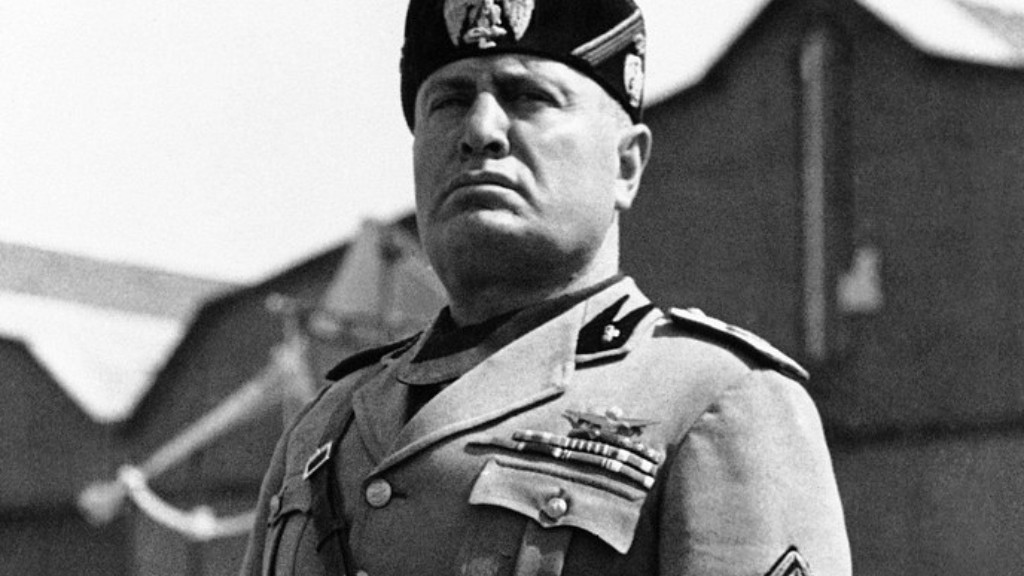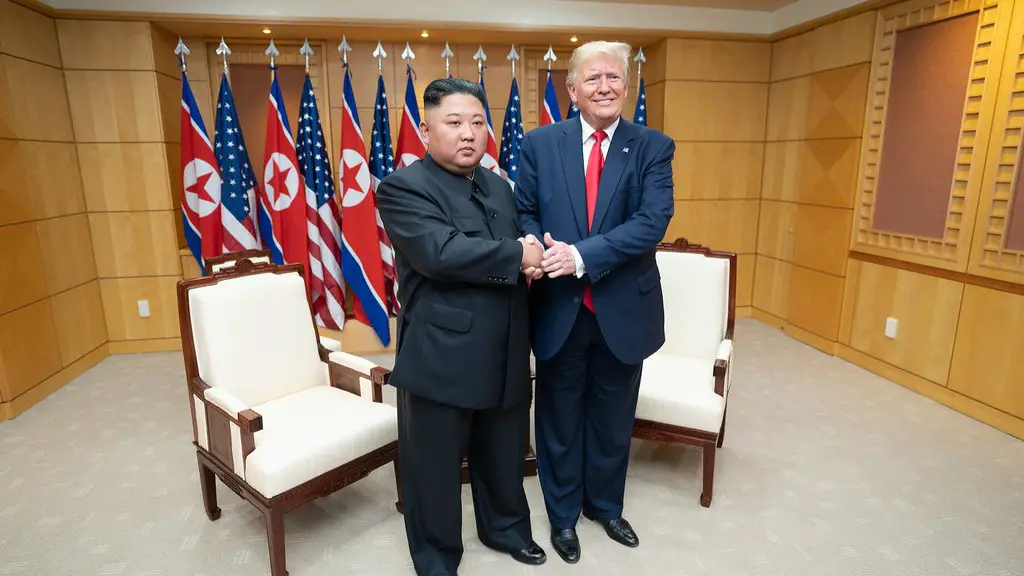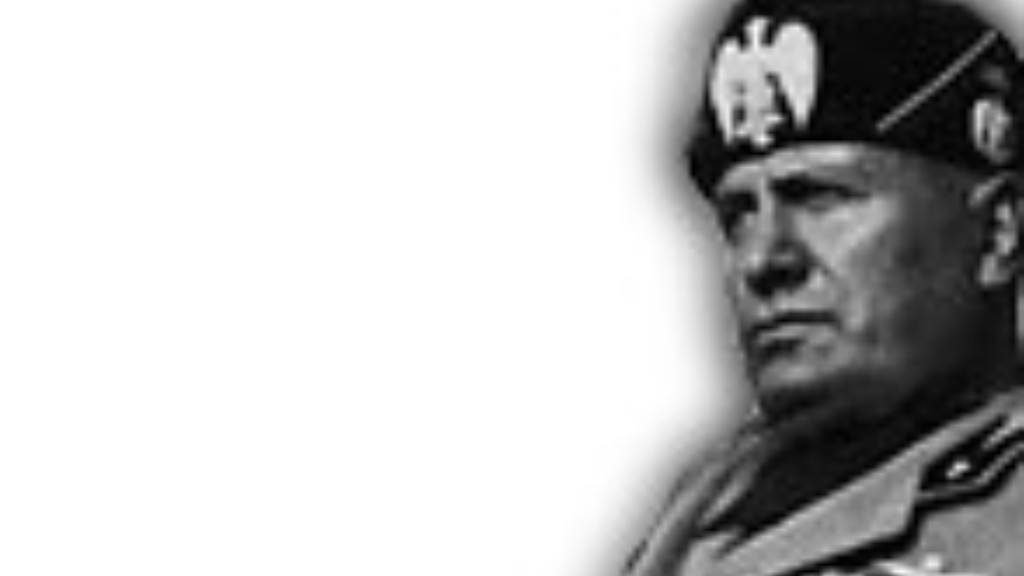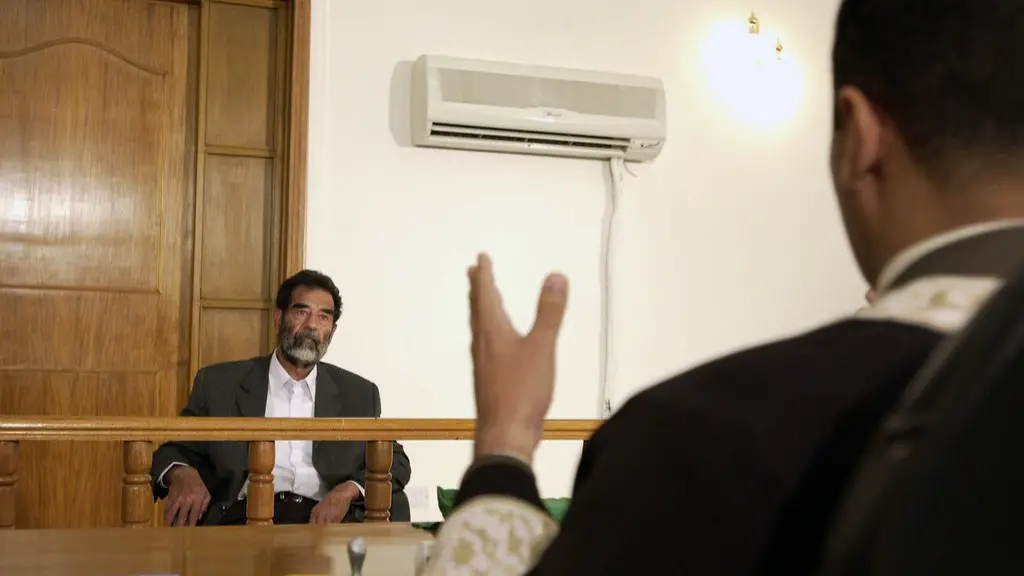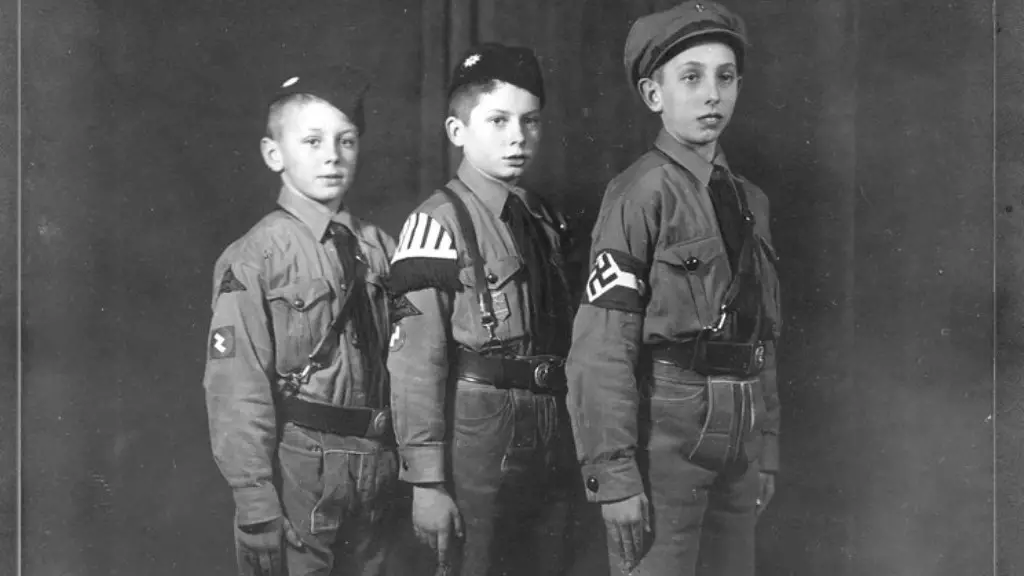Benito Mussolini was the prime minister of Italy from 1922 to 1943. He was a key player in the lead up to World War II, helping to secure a pact with Nazi Germany in 1939. Mussolini also played a role in the war itself, sending Italian troops to support the German war effort in 1940. Ultimately, however, Mussolini’s ambitions for his own country led to Italy’s defeat, and he was toppled from power in 1943.
Benito Mussolini was the founder and leader of the National Fascist Party in Italy. He was Prime Minister of Italy from 1922 to 1943, and Duce of Fascism from 1925 to 1945. Mussolini contributed to World War II by joining the Axis Powers in 1940.
How did Benito Mussolini help in ww2?
Mussolini was an Italian dictator who allied himself with Hitler during World War II. He initially delayed joining Hitler, but eventually did so when it became clear that the Nazis were going to defeat France. Mussolini then decided to invade Greece, but his army was badly beaten and had to be rescued by German troops. In 1941, he sent 200,000 of his soldiers to aid Hitler’s invasion of the Soviet Union.
Mussolini’s decision to join the war on Germany’s side was a mistake. His armies were not prepared and were not successful in battle. This led to him becoming unpopular with the Italian people.
How did Italy contribute to ww2
Italy joined the war as one of the Axis Powers in 1940, as the French Third Republic surrendered. Italy’s plan was to concentrate its forces on a major offensive against the British Empire in Africa and the Middle East, known as the “parallel war”, while expecting the collapse of British forces in the European theatre. Unfortunately for Italy, this plan did not come to fruition and the country ended up losing the war.
Benito Mussolini’s fascism greatly affected Italian foreign policy and helped lead to World War II. His fascist regime strongly promoted nationalism, a love of warfare, and expansionism. These values were reflected in Italy’s foreign policy at the time and helped contribute to the outbreak of World War II. Mussolini’s fascism ultimately had a negative impact on Italy and the world, but his legacy continues to be studied and analyzed today.
How did Mussolini come to power in ww2?
Italian King Victor Emmanuel III refused to declare a state of emergency or martial law when the government dissolved. Instead, he asked Mussolini to form a new government. As both prime minister and interior minister, Mussolini had control over the police, a critical factor in his rise to power.
I don’t necessarily agree with Mussolini’s methods, but he did accomplish a lot in terms of infrastructure and development. We can’t deny that he made a significant impact on Italy.
Why did Italy switch sides in ww2?
Italy wanted to gain territory in Turkey and Africa but didn’t succeed at the end of WWI. The Treaty of Versailles was also unsatisfactory to Italy, who felt that they had been treated unjustly. As a result, Italy joined forces with Japan and Germany in order to try and reclaim its lost territory.
The attack on Pearl Harbor was a surprise military strike by the Imperial Japanese Navy against the United States naval base at Pearl Harbor, Hawaii, on the morning of December 7, 1941. The attack led to the United States’ entry into World War II.
In response to the attack, on December 11, 1941, Italy declared war on the United States. This was a formality, as the two countries were already at war with each other as a result of Italy’s alliance with Nazi Germany.
Why did Italy betray Germany in ww2
Italy was one of the members of the Axis Powers during World War II, but the country never betrayed Hitler – even though Mussolini, the Italian leader, got them into the Axis in the first place. This was because Mussolini wanted power, and Hitler was the one who could give it to him. However, Italy was defeated in WW 2 and joined the Allies to fight off the invading German armies.
Italy joining the war as Germany’s ally was a significant event in the war. Italy’s forces attacking British interests in North and East Africa put additional pressure on the Allied forces.
What were the 3 causes of fascism in Italy?
Italian Fascism was a political movement that emerged in the early 1920s in Italy. The Fascists aimed to create a new Italian empire through a process of national renewal and revitalization. They believed that this could be achieved by restoring and expanding Italian territories, which they deemed necessary for a nation to assert its superiority and strength. The Fascists also advocated for a strong central government, national syndicalism, and revolutionary nationalism.
The Treaty of Versailles following WWI led to a lot of resentment among the German people. The worldwide economic depression made it difficult for countries to maintain their military. The rise of militarism in Germany and Japan led to an arms race between the two countries. The failure of the League of Nations made it difficult to prevent conflict.
What is the main reason of Second World War
On September 1, 1939, Germany invaded Poland, marking the beginning of World War II. This act drove Great Britain and France to declare war on Germany, leading to a global conflict. World War II resulted in the deaths of millions of people and was one of the most devastating wars in history.
After becoming prime minister, Mussolini reduced the influence of the judiciary, muzzled a free press, arrested political opponents, continued condoning fascist squad violence and otherwise consolidated his hold on power. All of these actions helped to solidify Mussolini’s grip on Italy and ensured that his regime would remain in place for years to come.
Did the US bomb Italy in WWII?
The first large-scale bombing of Rome by the Allies occurred on July 19, 1943. A total of 690 aircraft of the United States Army Air Forces (USAAF) took part in the raid, dropping a total of 9,125 bombs on the city. The bombs caused substantial damage to Rome’s infrastructure and killed an estimated 2,752 people.
June 1940 marks a significant turning point in World War II. Up until this point, France had been one of the main aggressors, but their defeat at the hands of Germany was imminent. Italy saw this as an opportunity to join forces with Germany and try to claim some of France’s territory for themselves. This decision was opposed by many in Italy, but Mussolini was adamant. Ultimately, Italy’s joining of the war did not change the course of the conflict, and they remained on the losing side.
Why was Italy angry after WWI
The Treaty of London, also known as the Treaty of Mutual Guarantee, was a pact signed on 18 May 1815 by the Great Powers of Austria, France, Prussia, Russia, and the United Kingdom. The Quintuple Alliance was formed in order to defeat Napoleon Bonaparte and to restore the Bourbon monarchy in France. As part of the agreement, Italy was promised certain territorial concessions in exchange for its participation in the war.
However, Italy did not receive all of the territory it felt it deserved, and this caused resentment among the Italian people. The government was seen as weak and lacking in pride, which only served to worsen the situation.
The Italian government’s declaration of war against Germany on October 13, 1943 was a turning point in World War II. With Mussolini deposed from power and the collapse of the fascist government in July, the Italians had changed sides and were now fighting alongside the Allies. This helped to turn the tide of the war in the Allies’ favor.
Conclusion
Benito Mussolini was the head of the National Fascist Party in Italy and he was the country’s Prime Minister from 1922 to 1943. As a fascist leader, Mussolini supported the expansion of the Italian empire. In 1935, he invaded Ethiopia and in 1936, he signed the Rome-Berlin Axis with German Chancellor Adolf Hitler. In 1939, Mussolini invaded Albania and in 1940, he entered into an alliance with Japan. Mussolini also supported Hitler’s invasion of France and the Soviet Union. As a result of his aggressive foreign policy, Mussolini contributed to the outbreak of World War II.
Benito Mussolini was one of the main instigators of World War II. His aggressive foreign policy, including the invasion of Ethiopia and the annexation of Albania, stoked the flames of war. His alliance with Adolf Hitler and Nazi Germany led to Italy’s involvement in the war. Mussolini’s actions helped to plunge the world into the deadliest conflict in history.
